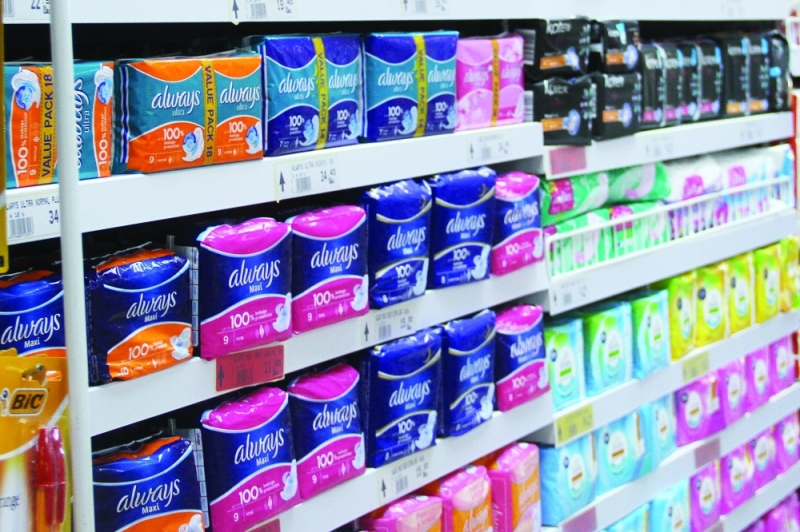Free sanitary pads provision in schools debate reignites
Lebogang Mosikare | Monday April 11, 2022 06:00


Although it is a well-known fact that opposition parties in Botswana advocated for free sanitary pads in schools long before the Botswana Democratic Party's (BDP) Member of Parliament for Nata-Gweta, Polson Majaga tabled the motion in 2017, which legislating for free provision, was well-received. The motion was first tabled in Parliament in 2012 by Botsalo Ntuane, then a member of the Botswana Movement for Democracy. It took five years for the motion to be tabled under the BDP and finally be adopted in Parliament after Ntuane had changed into the ruling party colours. By then Majaga and then secretary-general, Ntuane were party fellows.
Despite the motion's arduous journey, many politicians across the political spectrum hailed the progressive step, with cheers from parents, civic organisations and the United Nations Educational, Scientific and Cultural Organisation (UNESCO).
According to the UN's education agency, UNESCO, one in 10 girls in sub-Saharan Africa misses school during their monthly menstrual period.
At the time, the UNESCO report was of critical use for Majaga to justify his case in Parliament.
Majaga said then according to the UNESCO report, in extreme cases, some students lose 20% of their education due to menstrual periods making them more likely to drop out of school altogether.
Majaga stated that the provision of sanitary pads to all schools would improve access to education in a country where many could not afford sanitary products like pads and tampons, adding that the pads should be given to every girl-child registered at either a private or government school. Since the adoption of free provision of sanitary pads in schools, accessibility has not been streamlined as well as envisaged.
On Wednesday, the chairperson of the national Parents, Teachers Association, Edward Moganana said that the provision of sanitary pads in schools is long overdue.
In a telephone interview with Mmegi, Moganana said that the Mmegi enquiries coincided with a workshop that the Ministry of Basic Education, UNESCO and other key stakeholders held in Gaborone recently.
“We are currently holding a workshop about the protection of the girl-child and other issues related to the overall protection of children with various stakeholders. We are discussing Gender-Based Violence (GBV) and the proper raising of the girl-child amongst other issues. A lot of school children (girls) who are participating in the workshop have raised the issue of free provision of sanitary pads during group discussions and their concerns deserve to be given attention because the issue is long overdue since it was adopted by Parliament in 2017,” Moganana said.
Moganana stated that the Kgosi Puso Gaborone Commission came up with recommendations about the provision of free sanitary pads in schools because of the attendant benefits that come with that.
“Following the paper that Kgosi Puso Gaborone Commission handed to the government in 2008, the state promised to implement some of the recommendations in 2009 amongst them the provision of sanitary pads to no avail till today,” a concerned Moganana bemoaned.
Asked what may be delaying the adoption of the Kgosi Puso Gaborone Commission and the Majaga motion, Moganana stated that from time immemorial, there has been a problem with the implementation of ideas within the government enclave.
“Our government sometimes come up with noble ideas but those ideas are never implemented. In addition, the government never set aside money to fund some of the ideas that it wants to implement hence it is not surprising that Majaga’s motion was never implemented because it is clear that it was not budgeted for,” Moganana said.
He added that the failure by the state to honour its promise has inherent consequences such as school girls ending up being forced to engage in relationships with older men who can afford to buy them (girls) sanitary pads.
The Minister of Basic Education Fidelis Molao said the provision of free sanitary pads in schools has long been happening in Botswana.
“The provision of free sanitary pads is handled by the Ministry of Local Government and Rural Development and the pads are provided under the dispensation of the social safety net. The rationale behind the free provision of the pads is that they are only provided to children who have been assessed and it was discovered that their parents or guardians don’t have the means to provide the same to their children. The children were given free sanitary pads even before the motion was adopted in Parliament. The motion to provide free sanitary pads was re-emphasising the need to do so,” Molao said.
As recent as last week, Malawi axed tax on sanitary pads following in the footsteps of Kenya in 2017, which started to provide free sanitary pads to schoolgirls.
According to a 2014 campaign, the problem of girls missing school was not only found in Africa but is also prevalent in countries like India, Nepal and Afghanistan for the same reason.
